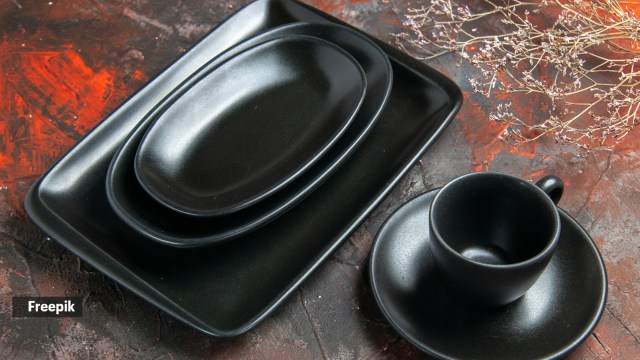📣 For more lifestyle news, click here to join our WhatsApp Channel and also follow us on Instagram
You might be unknowingly risking your life by using this item in the kitchen
Long-term exposure significantly increases the risk of developing various cancers, including lung, colorectal, and breast.
 Do not use this item in the kitchen (Source: Freepik)
Do not use this item in the kitchen (Source: Freepik)Black plastic might seem like a harmless kitchen staple, but what if I told you it’s quietly contaminating your food? Layne Kilpatrick, aka the hormone specialist on Instagram, recently shared a video highlighting the perils of using black plasticware in the kitchen.
According to him, many black plastic utensils are made from recycled electronics like TVs and computer casings, loaded with flame retardants and heavy metals. A 2024 study found 85% of black kitchen items contained banned flame retardants, some in alarmingly high concentrations, he quoted in the video.
“Heat those utensils in a pan or pot of oil, and those chemicals can leach into your meal. That means every stir, flip, or scoop could be dosing your food with hormone disruptors and carcinogens linked to thyroid problems, reproductive issues, and neurotoxicity,” said Kilpatrick, adding that no level of exposure is truly safe. “The fix is simple: swap out black plastic for stainless steel or wood. And don’t microwave plastic utensils or reuse them.” Small change. Big impact.
Curious, we decided to consult a health expert to gain a deeper understanding.
Consultant dietician and diabetes educator Kanikka Malhotra told indianexpress.com that black plastic utensils raise concerns due to the potential leaching of polycyclic aromatic hydrocarbons (PAHs) during cooking.
How do PAHs from black plastic utensils leach into food?
Malhotra said that the leaching of PAHs from black plastic utensils into food is a concern, especially during high-heat cooking. Here’s how it happens:
Heat: High temperatures increase the movement of molecules, causing PAHs to migrate from the plastic into food.
Fatty foods: PAHs are lipophilic, meaning they dissolve more readily in fats. Cooking fatty foods with black plastic utensils enhances leaching.
Length of contact: The longer the utensils are in contact with hot food, the greater the potential for leaching.
High-risk cooking methods: Cooking methods that involve high heat and prolonged contact with utensils pose the highest risk. This includes frying because the combination of high oil temperature and long cooking time significantly increases PAH leaching.
Malhotra shared that PAHs are probable carcinogens that may put one at risk of getting cancer. This means long-term exposure significantly increases the risk of developing various cancers, including lung, colorectal, and breast.
 The leaching of PAHs from black plastic utensils into food is a concern (Source: Freepik)
The leaching of PAHs from black plastic utensils into food is a concern (Source: Freepik)
“PAHs are not readily broken down by the body, and can accumulate in organs over time. This accumulation can lead to liver damage as it can impair its normal function, hindering its ability to detoxify the body. Accumulated PAHs can also strain the kidneys, potentially leading to kidney dysfunction. Additionally, studies suggest PAH exposure can disrupt hormonal balance and fertility in both men and women,” she explained.
While less studied compared to other health risks, Malhotra said that PAH exposure can irritate the airways and exacerbate existing respiratory conditions like asthma. This is especially concerning for individuals already struggling with breathing difficulties.
“The severity of the effects depends on various factors like frequency, duration of exposure, and individual health. However, it’s crucial to minimise exposure to these potential toxins for overall health,” she added.
What can you use instead?
To minimise health risks, Malhotra advises opting for safer utensils such as:
Stainless steel: This utensil is durable, non-leaching, and widely available.
Silicone: Heat-resistant and inert, silicone utensils are the ideal choice for cooking. However, choose food-grade silicone as it will last longer.
Wooden utensils: These are natural and generally safe, but avoid using them for vigorous stirring or high-heat cooking.
📣 For more lifestyle news, click here to join our WhatsApp Channel and also follow us on Instagram
- 01
- 02
- 03
- 04
- 05



























